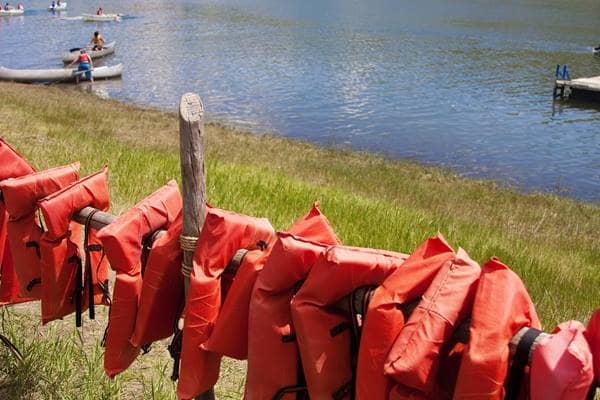Warm water amoeba hazard

An amoeba called Naegleria fowleri is common in many freshwater bodies of water throughout the south. Only 3 people out of 138 known infected individuals in the United States from 1962 to 2015 have survived.
Naegleria lives in the top few inches of muddy sediment at the bottom of any body of freshwater and thrives when the water temperature reaches 80 degrees or above. It is also present at lower temperatures. Warmer water temperatures due to global warming and lakes that have warmed up over the summer would logically indicate that this amoeba may be a hazard at more northern lakes in the coming years. Flowing rivers tend to be cooler than shallow lakes or ponds and may not harbor as many of the amoeba, though scientists are not certain. Health officials say that the amoeba does not occur in well-maintained swimming pools, but the key phrase is “well-maintained.”
Naegleria enters the body through the nose and travels to the brain, where it causes an infection and swelling called amoebic encephalitis. It is nearly always fatal, though it can be treated with antibiotics if caught quickly enough. It strikes quickly once the symptoms appear (usually 1 to 14 days after contact)—headache, fever, nausea, vomiting, followed by lethargy, stiff neck, and confusion. Brain tissue is destroyed by the amoeba and death can occur 3 to 10 days after symptoms are noticed.
Stirring up the sediment on the bottom of lakes and ponds suspends the amoeba in the water, allowing it to reach the nasal passages. Scientists do not know how many of the amoeba need to be in the water to present a danger or whether there is a safe concentration. Though most of the people who have died have been fairly young, doctors don’t know if age is a factor—it could be simply that young people tend to be more active swimmers and do things to stir up the water.
Here are a few risk-management suggestions:
- If you own your swimming area, have the water and the bottom muck tested monthly during the summer. If you don’t own your swimming area, see if anyone else is testing the water and find out exactly what they are testing for (usually only e-coli).
- Provide and use nose clips when swimming or diving in freshwater, particularly when water temperatures reach 80 degrees and above.
- Try to swim in deeper bodies of water, and avoid stirring up the bottom.
- Stay on the surface and don’t swim near the bottom. Though infections and death have been relatively rare, increasing global temperatures and the lethalness of this little bug make it a risk that youth programs should respect. It’s a good idea to train your staff to identify the bug’s medical symptoms and work to prevent outbreaks.
For more information about Naegleria fowleri and other recreational water illnesses, visit the CDC’s website.

This "document” is intended for general information purposes and should not be construed as advice or opinions on any specific facts or circumstances. The content of this document is made available on an “as is” basis, without warranty of any kind. This document cannot be assumed to contain every acceptable safety and compliance procedure or that additional procedures might not be appropriate under the circumstances. Markel does not guarantee that this information is or can be relied on for compliance with any law or regulation, assurance against preventable losses, or freedom from legal liability. This publication is not intended to be legal, underwriting, or any other type of professional or technical advice. Persons requiring advice should consult an independent adviser or trained professional. Markel does not guarantee any particular outcome and makes no commitment to update any information herein, or remove any items that are no longer accurate or complete. Furthermore, Markel does not assume any liability to any person or organization for loss or damage caused by or resulting from any reliance placed on this content.
Markel® is a registered trademark of Markel Group Inc.
© 2023 Markel Service, Incorporated. All rights reserved.
Tags
